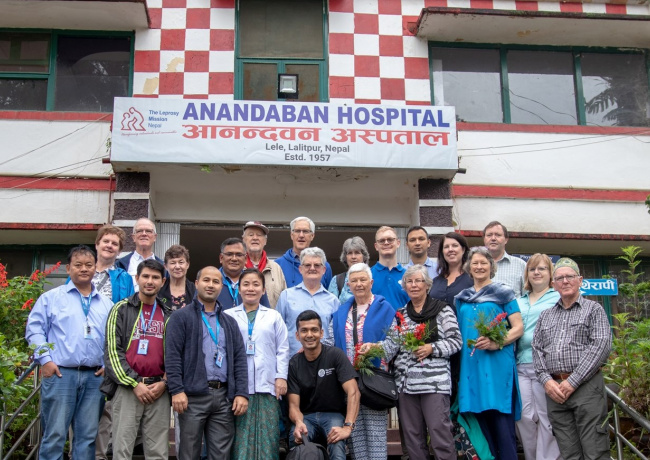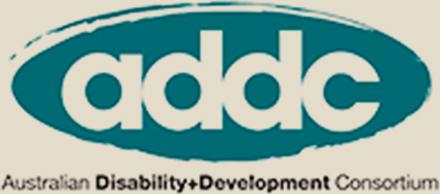Healthcare Projects
What We Do
The Leprosy Mission’s hospitals are centres of excellence that provide an exceptional level of care to leprosy patients as well as meeting the general medical needs of their surrounding communities.
Leprosy is a disease that can cause serious complications, all of which require medical treatment. Through our network of hospitals, clinics, mobile clinics, and orthopaedic workshops, we offer the support that people need to lead healthy, happy lives of dignity and respect.
Through our healthcare centres we provide reconstructive surgeries, physiotherapy, assistive devices, treatment of ulcers and leprosy reaction, and counselling. Through these services we are able to address all of the medical needs that a person affected might face because of the disease.

Your Hospitals and Clinics
Hospitals and clinics in India and Nepal provide lifesaving, transformative treatment, and care to marginalised groups around the world.

Self Care
We empower patients to independently care for their own wounds and ulcers to prevent damage and disability.

Our Healthcare Projects

Nepal
No child should suffer leprosy
No child should suffer leprosy.Your urgent action now offers new life! Sometimes the suffering is just too much. What Satendra did to try to escape the suffering of leprosy is heartbreaking… Satendra was a boy. Just a boy.

Nepal
Nepal Self Care Unit- Nepal
Located on the grounds of Anandaban Hospital (a hospital specialising in leprosy) in Kathmandu, the Self Care Unit (SCU) provides self-care education to people affected by leprosy. People with leprosy often lose sensation in their hands and feet. When there is decreased sensations, wounds and injuries can occur without the person realising. Without pain to let people know the condition of their injuries, wounds and ulcers can become severe and infected. If they are not treated carefully, it can result in limb amputation. Therefore, it is highly important for people with leprosy to learn how to prevent injury and care for their wounds. The SCU provides residential self-care training where patients live at the unit for approximately 2 weeks at a time to learn skills in caring for existing ulcers and skills to prevent further injury. These skills are then practiced in practical daily activities to support patients to learn how to apply their theoretical knowledge to practical every day activities and specific occupational tasks. This allows them to return home equipped with skills to continue their normal activities and occupations without causing further injury or disability. Patients are also provided with counselling sessions to learn strategies to support their mental health. This year, the Self Care Unit will be rebuilt to rectify structural damage caused during the 2015 earthquakes. The new structure will have increased disability accessibility and modernisation of rooms and facilities.

Nigeria
Strengthening Integrated Neglected Tropical Disease Control in Zamfara
This project aims to increase access to quality leprosy, Lymphatic Filariasis (LF) and disability services within an integrated health system for communities in Zamfara, Nigeria. Working closely with the Nigerian Government’s Department of Health to improve health services for people with leprosy and LF, train health workers, and increase access to health clinics at a local level. The project works to integrate leprosy awareness and services into existing health services and communities in Zamfara through supporting the strengthening of general health services. This is done through improving facilities and services in public health centres and hospitals to improve leprosy treatment services. Additionally, the project works to increase services provided at public health centres, such as antenatal care, mental health services, counselling. As increased community members access these services, leprosy screening is routinely provided. Additionally, the project works within communities to improve general health through the provision of clean water in water poor communities, provide assistive devices (prosthetic limbs) and conduct leprosy awareness campaigns. Working towards more inclusive communities by breaking the stigma of leprosy is also a key focus of the project. Self-Help Groups involving people with leprosy and other disabilities are supported to develop stable livelihoods and increase their confidence to become active contributing members of their communities. People with leprosy are taught to advocate for their rights and the project provides support to change processes to ensure their rights are upheld (For example: in ensuring people with leprosy can vote in the national elections).

Nigeria
Strengthening Integrated Neglected Tropical Disease Control in Zamfara
This project aims to increase access to quality leprosy, Lymphatic Filariasis (LF) and disability services within an integrated health system for communities in Zamfara, Nigeria. Working closely with the Nigerian Government’s Department of Health to improve health services for people with leprosy and LF, train health workers, and increase access to health clinics at a local level. The project works to integrate leprosy awareness and services into existing health services and communities in Zamfara through supporting the strengthening of general health services. This is done through improving facilities and services in public health centres and hospitals to improve leprosy treatment services. Additionally, the project works to increase services provided at public health centres, such as antenatal care, mental health services, counselling. As increased community members access these services, leprosy screening is routinely provided. Additionally, the project works within communities to improve general health through the provision of clean water in water poor communities, provide assistive devices (prosthetic limbs) and conduct leprosy awareness campaigns. Working towards more inclusive communities by breaking the stigma of leprosy is also a key focus of the project. Self-Help Groups involving people with leprosy and other disabilities are supported to develop stable livelihoods and increase their confidence to become active contributing members of their communities. People with leprosy are taught to advocate for their rights and the project provides support to change processes to ensure their rights are upheld (For example: in ensuring people with leprosy can vote in the national elections).

Nepal
Jhapa Leprosy Reduction
Following the successful conclusion of the RECLAIM II project, which supported 10 Self-Help Groups to become independent in eastern Nepal, the Jhapa Leprosy Reduction project has been established to increase our focus on reducing leprosy transmission in children under 18 years.

Indonesia
Urban Leprosy, Kotaku
The urban population, particularly around the capital city of Jakarta is rapidly expanding with rural migration, as people come to the city in search of work. With the high cost of living in cities, many people end up living in urban slums, where there is inadequate housing, poor sanitation, poor hygiene and crowded living environments. These conditions increase the risk of leprosy transmission.

Nepal
Unconditional Love like Jesus - Your unconditional love
Your unconditional love can restore the life of someone affected by leprosy this World Leprosy Sunday

Nigeria
Strengthening Integrated Neglected Tropical Disease Control in Zamfara
This project aims to increase access to quality leprosy, Lymphatic Filariasis (LF) and disability services within an integrated health system for communities in Zamfara, Nigeria. Working closely with the Nigerian Government’s Department of Health to improve health services for people with leprosy and LF, train health workers, and increase access to health clinics at a local level. The project works to integrate leprosy awareness and services into existing health services and communities in Zamfara through supporting the strengthening of general health services. This is done through improving facilities and services in public health centres and hospitals to improve leprosy treatment services. Additionally, the project works to increase services provided at public health centres, such as antenatal care, mental health services, counselling. As increased community members access these services, leprosy screening is routinely provided. Additionally, the project works within communities to improve general health through the provision of clean water in water poor communities, provide assistive devices (prosthetic limbs) and conduct leprosy awareness campaigns. Working towards more inclusive communities by breaking the stigma of leprosy is also a key focus of the project. Self-Help Groups involving people with leprosy and other disabilities are supported to develop stable livelihoods and increase their confidence to become active contributing members of their communities. People with leprosy are taught to advocate for their rights and the project provides support to change processes to ensure their rights are upheld (For example: in ensuring people with leprosy can vote in the national elections).

Unconditional Love like Jesus
Your unconditional love can restore the life of someone affected by leprosy this World Leprosy Sunday

Nigeria
Strengthening Integrated Neglected Tropical Disease Control in Zamfara
This project aims to increase access to quality leprosy, Lymphatic Filariasis (LF) and disability services within an integrated health system for communities in Zamfara, Nigeria. Working closely with the Nigerian Government’s Department of Health to improve health services for people with leprosy and LF, train health workers, and increase access to health clinics at a local level. The project works to integrate leprosy awareness and services into existing health services and communities in Zamfara through supporting the strengthening of general health services. This is done through improving facilities and services in public health centres and hospitals to improve leprosy treatment services. Additionally, the project works to increase services provided at public health centres, such as antenatal care, mental health services, counselling. As increased community members access these services, leprosy screening is routinely provided. Additionally, the project works within communities to improve general health through the provision of clean water in water poor communities, provide assistive devices (prosthetic limbs) and conduct leprosy awareness campaigns. Working towards more inclusive communities by breaking the stigma of leprosy is also a key focus of the project. Self-Help Groups involving people with leprosy and other disabilities are supported to develop stable livelihoods and increase their confidence to become active contributing members of their communities. People with leprosy are taught to advocate for their rights and the project provides support to change processes to ensure their rights are upheld (For example: in ensuring people with leprosy can vote in the national elections).

Timor-Leste
Improved Leprosy Services
The Improved Leprosy Services (ILS) project works in 2 high-endemic districts of Baucau, and Manatuto. Elimination of leprosy was announced in Timor Leste in the 2,000s. Since then, leprosy was not seen as a public health concern and active support for leprosy case finding and treatment ceased. Since leprosy was only eliminated but not eradicated, with limited treatment and management, leprosy cases are again increasing. The Improved Leprosy Services project works towards elimination of leprosy in the 2 identified districts. The project supports the Timor Leste National Leprosy Control Program to work towards strengthening the health system in leprosy detection, diagnosis and management. Collaborating closely with the government Ministry of Health, the project provides training in leprosy diagnosis and management to health workers, conducts active case finding activities to disrupt transmission and increase early detection. The project also supports patients to access regular treatment and learn appropriate self-care to protect themselves.

Timor-Leste
Improved Leprosy Services - Action B
The Improved Leprosy Services (ILS) project works in 2 high-endemic districts of Baucau, and Manatuto. Elimination of leprosy was announced in Timor Leste in the 2,000s. Since then, leprosy was not seen as a public health concern and active support for leprosy case finding and treatment ceased. Since leprosy was only eliminated but not eradicated, with limited treatment and management, leprosy cases are again increasing. The Improved Leprosy Services project works towards elimination of leprosy in the 2 identified districts. The project supports the Timor Leste National Leprosy Control Program to work towards strengthening the health system in leprosy detection, diagnosis and management. Collaborating closely with the government Ministry of Health, the project provides training in leprosy diagnosis and management to health workers, conducts active case finding activities to disrupt transmission and increase early detection. The project also supports patients to access regular treatment and learn appropriate self-care to protect themselves.

Indonesia
Leprosy Friendly Village Desaku
Villages are important places for people to have community and a sense of belonging. Unfortunately, due to misinformation and a lack of understanding, patients with leprosy are marginalised, feared and discriminated against, even by the health workers who are suppose to be treating them.

Nigeria
Strengthening Integrated Neglected Tropical Disease Control in Zamfara
This project aims to increase access to quality leprosy, Lymphatic Filariasis (LF) and disability services within an integrated health system for communities in Zamfara, Nigeria. Working closely with the Nigerian Government’s Department of Health to improve health services for people with leprosy and LF, train health workers, and increase access to health clinics at a local level. The project works to integrate leprosy awareness and services into existing health services and communities in Zamfara through supporting the strengthening of general health services. This is done through improving facilities and services in public health centres and hospitals to improve leprosy treatment services. Additionally, the project works to increase services provided at public health centres, such as antenatal care, mental health services, counselling. As increased community members access these services, leprosy screening is routinely provided. Additionally, the project works within communities to improve general health through the provision of clean water in water poor communities, provide assistive devices (prosthetic limbs) and conduct leprosy awareness campaigns. Working towards more inclusive communities by breaking the stigma of leprosy is also a key focus of the project. Self-Help Groups involving people with leprosy and other disabilities are supported to develop stable livelihoods and increase their confidence to become active contributing members of their communities. People with leprosy are taught to advocate for their rights and the project provides support to change processes to ensure their rights are upheld (For example: in ensuring people with leprosy can vote in the national elections).

Nigeria
Strengthening Integrated Neglected Tropical Disease Control in Zamfara KIT1
This project aims to increase access to quality leprosy, Lymphatic Filariasis (LF) and disability services within an integrated health system for communities in Zamfara, Nigeria. Working closely with the Nigerian Government’s Department of Health to improve health services for people with leprosy and LF, train health workers, and increase access to health clinics at a local level. The project works to integrate leprosy awareness and services into existing health services and communities in Zamfara through supporting the strengthening of general health services. This is done through improving facilities and services in public health centres and hospitals to improve leprosy treatment services. Additionally, the project works to increase services provided at public health centres, such as antenatal care, mental health services, counselling. As increased community members access these services, leprosy screening is routinely provided. Additionally, the project works within communities to improve general health through the provision of clean water in water poor communities, provide assistive devices (prosthetic limbs) and conduct leprosy awareness campaigns. Working towards more inclusive communities by breaking the stigma of leprosy is also a key focus of the project. Self-Help Groups involving people with leprosy and other disabilities are supported to develop stable livelihoods and increase their confidence to become active contributing members of their communities. People with leprosy are taught to advocate for their rights and the project provides support to change processes to ensure their rights are upheld (For example: in ensuring people with leprosy can vote in the national elections).




